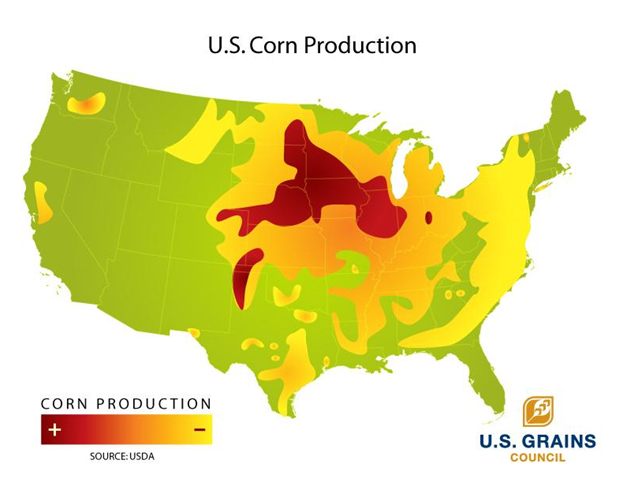Anti-GMO Vermont forces Big Food to rewrite labels
Who would have thought that Americans are finally becoming concerned about GMO foods and that it’s the tiny state of Vermont – with only 600,000 residents – that is setting a precedent?
As of 1 July 2016 Vermont requires all products sold in the state, which contain genetically modified organisms (GMO), to be labelled as such. Labelling, opponents of GMOs say, isn’t so much a health warning as a matter of letting consumers choose whether they want to support the production system such foods represent.
The law has prompted some major food producers such as Kellogg, General Mills and Mars to re-label all of their products, not just those going to Vermont, to save costs.
It should not come as a surprise that the law was hotly debated and criticised by a host of pressure groups, not least the agricultural lobby. That’s why the Vermont law comes with lots of exemptions.
Revealingly, alcohol products, such as beer and spirits, need not state if they contain genetically engineered material. Perhaps, the exemption was granted on the basis that no one knows as yet when “genetically modified” (GM) becomes non-GM. If you think that in brewing the corn added is mainly in the form of sugars (after mashing) and then these sugars are transformed by yeast ... how many degrees of separation do you need to clarify? Nevertheless, rumour has it that the grain/corn bourbon whiskey lobby and the farmers intervened successfully, as currently up to 92 percent of U.S. corn is genetically engineered (GE), as are 94 percent of soybeans , says the Center for Food Safety, a pressure group.
Historically, corn is the most popular adjunct used in American breweries, although it is really the ingredient that brewers dare not speak its name. It has been estimated that U.S. brewers use about 350,000 tons of corn annually – out of 360 million metric tons of corn harvested in 2014/2015 in the U.S., according to the U.S. Grains Council.
Of course, all of this is hearsay and rumour, but from what we at BRAUWELT International have picked up, the U.S. brewers who use corn as an adjunct are presently irresolute as to what the future will bring: will they be able to continue using corn, if the exemption from GE labelling is done away with or when consumer opposition to GMO and GE foods becomes more widespread?
Take it for granted that contingency plans are already being drawn up as to which adjunct could replace corn: unmalted barley, rice? The use of soy beans in brewing, as is the case in Japan, does not really offer itself to U.S. brewers because soy beans would need to be GE-labelled too (see above).
Another interesting train of thought is: how will Latin American brewers react, especially those exporting to the United States? The U.S. Grain Council reports that 13 percent of U.S. corn production was exported, with three countries – Japan (26 percent), Mexico (23 percent) and Colombia (9 percent) – the top three U.S. corn destinations.
Most importantly, how will farmers and commodity prices respond should brewers turn away from corn? Already, barley continues to fall behind corn and soybeans in terms of yield and cost of production.
One thing is certain: unless brewers and consumers are willing to pay more for beer, then beer made from GM ingredients will be a given. But, considering that malt/adjuncts make up only about 4 to 6 cents of the cost of a bottle of beer, if non-GM is seen as a marketing cost, consumers may prefer non-GM beers.
Viewed from Australia, this whole anti-GM campaign in the U.S. and Europe is so “last century” in its thinking.
As says the Australian malting barley expert, Dr Evan Evans: “That GM is safe is empirically evident and that it is beneficial to the environment is also proven. In Australia, we have 80+ percent of our cotton crop that is GM with the BT gene/s against the boll worm. This has resulted in a substantial reduction in the spraying of pesticides (organo phosphates) with a very desirable environmental effect. Moreover, in Australia, most frying oils are cotton seed oil, mainly from GM cotton, and have been so for nearly 20 years. Also I would add, regarding the large amounts of soy and corn going into Europe and Japan out of the U.S., there is likely to be many consumers eating GM tainted products unawares and suffering no ill effects.”
It’s a funny thought: all those grassroots activists having gone vegan to save the planet, thinking they are shunning GE foods as they tuck into their crispy breaded tofu steaks…
Keywords
USA barley raw materials food labelling environment adjuncts international beverage market
Authors
Ina Verstl
Source
BRAUWELT International 2016

